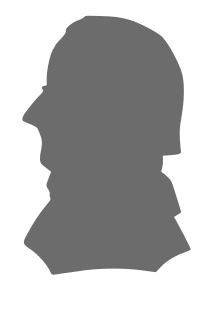lingvo.wikisort.org - Researcher
Otto Wilhelm Masing (8 November [O.S. 28 October] 1763 in Lohusuu, Kreis Dorpat, Livland Governorate – 15 March [O.S. 3 March] 1832 in Äksi, Livland Governorate) was an early Baltic German Estophile and a major advocate of peasant rights, especially regarding education.
This article may be expanded with text translated from the corresponding article in German. (March 2010) Click [show] for important translation instructions.
|

Life
He received schooling at the town school of Narva (1777–1779) and then (1779–1782) at the Gymnasium of Torgau (Germany) before studying theology, music and drawing at the University of Halle, returning to Estonia in 1786.
In 1796 he married Dorothea Amalie Ehlertz (1776–1809) in St. John's Church of Dorpat (Tartu),[1] a daughter of the city councillor Carl Ulrich Ehlertz (1739–1790) [2] and his wife Louisa Dorothea née Stockenberg (1755–1803), a great-granddaughter of the sculptor Johann Gustav Stockenberg.
Work

His first employment after concluding his studies was as private tutor at the Manor in Neu-Isenhof (Püssi) for the children of the nobleman Otto Magnus von Toll.
In 1788 he became the pastor of the (Lutheran) church in Lüg (Lüganuse) (1788–1795), then serving from 1795 in Maholm (Viru-Nigula) (1795–1815) and from 1815 in Ecks (Äksi), where he remained as pastor until his death.[3]
From 1818 he also took on the post of assessor of the consistory of Livonia and from 1821 onwards he was also Provost for Tartu.
Contributions as publicist and linguist

In 1795, Masing compiled and published a children's textbook for learning reading, the ABD. (The letter 'C' does not appear in Estonian words, and back then, was not considered a member of Estonian alphabet. This considered, the title could be translated as "ABC.") He published a further textbook with methodical reading instructions, the Luggemislehhed, in 1821.
From 1821 to 1823, Masing published a newsletter Marahva Näddala-Leht (Estonian for Peasant's Weekly), one of the earliest regular publications in the Estonian language.
Among other linguistic contributions, Masing is credited with creating the letter 'õ' to denote an Estonian phoneme not found in other related languages.[4]
Honours
External links
References
- Entry in the Register of Marriages of the Parish of St. John (Estonian: Tartu Jaani kogudus)
- von Lemm, Robert Arthur (1960), Dorpater Ratslinie 1319-1889 und das Dorpater Stadtamt 1878-1918, Marburg/Lahn: Herder-Inst.
- "Eesti monumentide e-kataloog - Viru-Nigula Otto Wilhelm Masing".
- "Kuidas tuli õ-täht eesti kirjakeelde?".
- Napiersky, Karl Eduard (1851), Beiträge zur Geschichte der Kirchen und Prediger in Livland. Drittes Heft, Lebensnachrichten von den livländischen Predigern, mit litterärischen Nachweisen. Zweiter Theil, H-P, Mitau: J.F. Steffenhagen und Sohn, hdl:10062/29497, ISBN 9789949317660
- Paucker, Hugo Richard (1849), Ehstlands Geistlichkeit in geordneter Zeit- und Reihefolge, Reval: Lindfors Erben, hdl:10062/17510
Другой контент может иметь иную лицензию. Перед использованием материалов сайта WikiSort.org внимательно изучите правила лицензирования конкретных элементов наполнения сайта.
WikiSort.org - проект по пересортировке и дополнению контента Википедии